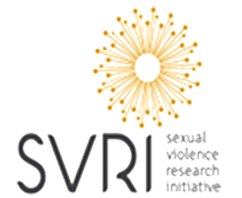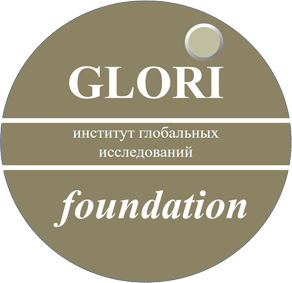 |
 |
 |
 |
 |
 |
Improving access of women from marginalized populations to mainstream GBV-services
PF CNPI, with the support of the non-governmental organization Sexual Violence Research Initiatives (SVRI), South Africa are launching a new social project, “Improving the access of women from marginalized groups to basic services to combat gender and domestic violence in Kazakhstan” ( project “Umai”), which will be carried out on the territory of Almaty and Almaty region in 2022-2024.
The project seeks to address gaps in Intimate partner violence (IPV) and gender-based violence (GBV) services to marginalized populations of women: women who use drugs, women who trade sex, women living with HIV, and transgender women in Kazakhstan.
Selected gender-based violence services (e.g. DV crisis shelters) in three communities in Almaty, Kazakhstan will be selected to identify and work with partner organizations that primarily serve marginalized groups of women such as harm reduction programs.
The primary aims of this project are to employ evidence-based interventions to identify marginalized women at risk of IPV or GBV in partner organizations and to link them to mainstream gender-based violence services and to advance effective community coordinated response to addressing the epidemic of IPV and other forms of GBV among marginalized groups of women.
The project will focus on implementing a package of two evidence-based interventions: Women Initiating new Goals for Safety (WINGS) which is a GBV screening, brief intervention and referral to treatment/services tool and the Community that Cares (CTC) intervention which is an evidence-based community coordinated response intervention that has been used to reduce violence and substance misuse in several different countries.
GBV providers along with partner organizations serving marginalized populations of women will be trained on how to deliver WINGS and expand their reach and quality of services to key affected populations. In addition, we will form Community Action Boards (CAB) that will be comprised of key stakeholders in each of the three communities that will implement the CTC intervention to promote a community coordinated response to addressing IPV and GBV among women who use drugs, women who engage in sex work, women living with HIV and transgender women. The CTC model will be employed to ensure sustainability and integration of the project model after the project ends. To evaluate the effectiveness of implementation, feasibility, and sustainability, we will employ a waitlist control design where three communities will start the interventions in different time points allowing us to compare the effects of the WINGSS+CTC model on increasing the number of women from marginalized populations who are identified as experiencing IPV and/or GBV and the number of women from marginalized communities who are linked to mainstream GBV services and are receiving services . In addition, qualitative data will be collected to better understand and interpret multi-level barriers and facilitators for intervention implementation and sustainability. Finally, the study results will be packaged and disseminated via webinars and online conferences to partners in Kazakhstan and Central Asia.
Research question: What evidence-based interventions for marginalized women at risk of IPV/GBV to link them to mainstream GBV services and to advance effective community coordinated response to addressing the epidemic of IPV and other forms of GBV among marginalized groups of women in Kazakhstan.
Research synopsis: “Improving access of women from marginalized populations to mainstream GBV-services”. This research project seeks to address the issue of Violence against Women (VAW), including intimate partner violence (IPV) and Gender-Based Violence (GBV) among three vulnerable subpopulations of women: women who use drugs, women who trade sex, and women living with HIV in Kazakhstan. We propose to adapt and implement the evidence-based intervention WINGS (Women Initiating New Goals for Safety), developed by Dr. Louisa Gilbert, Co-Director of GHRCCA and Professor of Columbia University School of Social Work, and successfully implemented in LMICs such as Kyrgyzstan, India, and Ukraine, in combination with the coordinated community responses. Selected GBV services (e.g. DV crisis shelters) in three communities in Almaty, Kazakhstan will be selected to identify and work with partner organizations that primarily serve marginalized groups of women such as harm reduction programs.
Improving access of women from marginalized populations to mainstream gender based violence services
RESEA RCH INSTITUTION : Social Fund “Center for Scientific and Practical Initiatives”, KAZAKHSTAN
TEAM MEMBERS
- Local PI – Dr. Assel Terlikbayeva
- Co-PI – Ms. Sholpan Primbetova, Master of Science in Social Work
- Co-Is: Drs. Nabila El-Bassel and Louisa Gilbert.
CONTEXT
Gender-based violence (GBV) which includes intimate partner violence
(IPV) and other forms of violence against women (VAW) remains a serious public health threat in Central Asia. Although data on GBV/IPV is greatly lacking due to underreporting, global estimates indicate about one-quarter (24%) of women in Central Asia have experienced physical and sexual forms of IPV (WHO, 2013), and more than a third have been physically abused
by an intimate partner (UNFPA, 2015). The project seeks to evaluate and implement an integrated GBV response programme to address service gaps for marginalized populations of women: women who use drugs, women who trade sex, women living with HIV, and transgender women in Kazakhstan. The project is a partnership between selected domestic violence crisis shelters in three communities in Almaty, Kazakhstan and NGOs that primarily provide harm reduction services to marginalized groups of women.
STUDY CONTRIBUTION
The project will provide proof of concept of an innovative evidence- based intervention in combination with a coordinated community-based approach into the mainstream GBV facilities in Kazakhstan, thus increasing access to and addressing critical GBV service gaps to women from marginalized groups. The project will also provide evidence for community- based solutions that can be adopted by government to widen access to GBV mainstream services among marginalized groups of women. This study will advance the science of GBV implementation research and contribute to community engagement regionally and globally for addressing GBV by documenting the CABs’ influence on local adaptations of WINGS and CTC community coordinated response intervention.
CONTEXT
Gender-based violence (GBV) which includes intimate partner violence
(IPV) and other forms of violence against women (VAW) remains a serious public health threat in Central Asia. Although data on GBV/IPV is greatly lacking due to underreporting, global estimates indicate about one-quarter (24%) of women in Central Asia have experienced physical and sexual forms of IPV (WHO, 2013), and more than a third have been physically abused
by an intimate partner (UNFPA, 2015). The project seeks to evaluate and implement an integrated GBV response programme to address service gaps for marginalized populations of women: women who use drugs, women who trade sex, women living with HIV, and transgender women in Kazakhstan. The project is a partnership between selected domestic violence crisis shelters in three communities in Almaty, Kazakhstan and NGOs that primarily provide harm reduction services to marginalized groups of women.
PROJEC T AIM
The project aims to identify and increase linkages to GBV services for women from marginalized groups by evaluating the effectiveness of implementation, feasibility, and sustainability of an enhanced integrated model of a computerized self-paced intervention with the multisectoral community-coordinated response in several communities of Almaty in Kazakhstan.
The project will focus on adapting, evaluating and implementing a package of two evidence-based interventions: Women Initiating New Goals for
Safety (WINGS) – which is a GBV screening, brief intervention, and referral to treatment/services tool – and the Community that Cares (CTC) intervention which is an evidence-based community coordinated response intervention that has been used to reduce violence and substance misuse in different countries. WINGS had been successfully piloted and implemented in Kyrgyzstan by our partnering Global Research Institute Foundation (GLORI) under the leadership of Mr. Danil Nikitin, who will be the Senior Consultant for our study. GBV providers along with partner organizations serving marginalized populations of women will be trained on how to deliver WINGS and expand their reach and quality of services to key affected populations. To this end, the project will adapt a computerized and self-paced version of WINGS for easy and convenient delivery by a facilitator, counselor, social worker, and/or case manager with minimal prior training. In addition, we will form Community Action Boards (CAB) that will be comprised of key stakeholders in each of the three communities that will implement the CTC intervention to promote a community coordinated response to addressing IPV and GBV among women who use drugs, women who engage in sex work, women living with HIV and transgender women.




